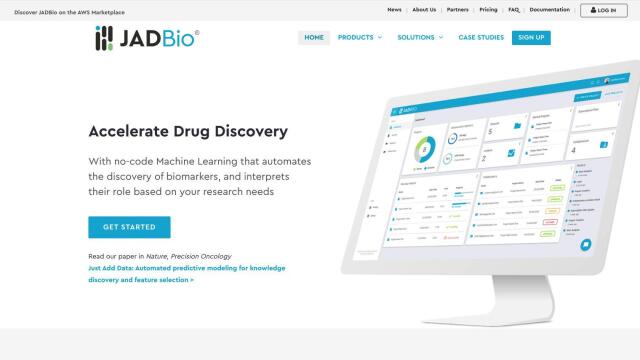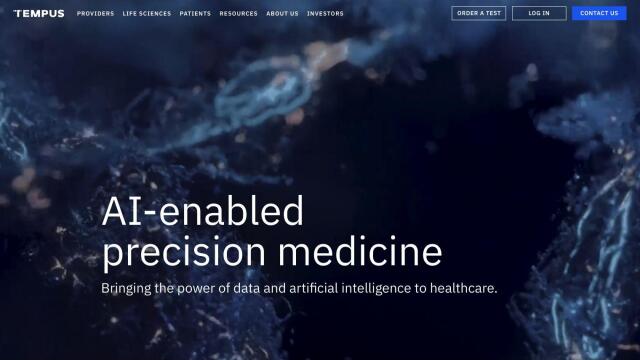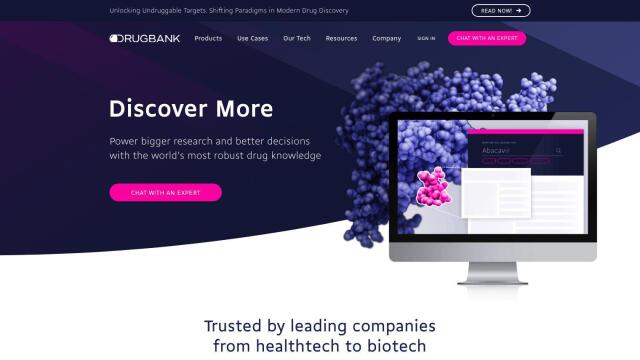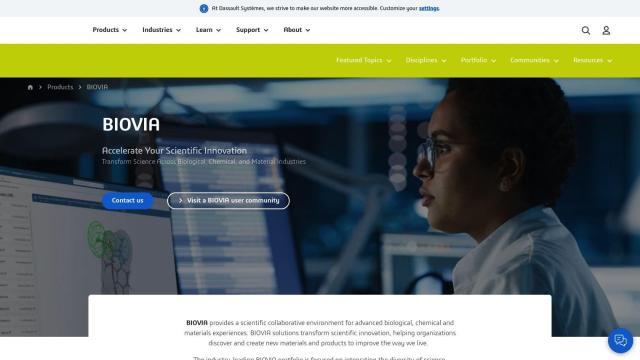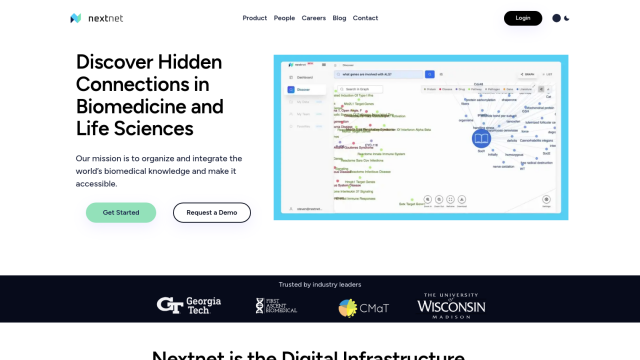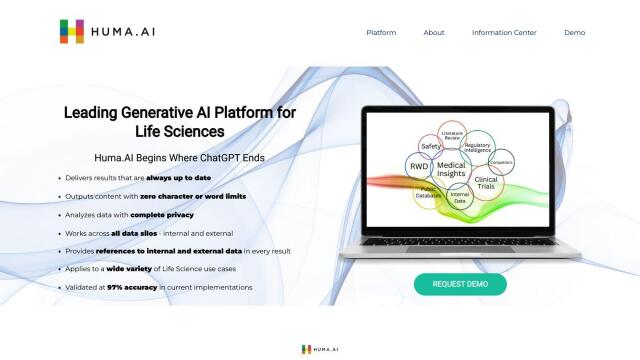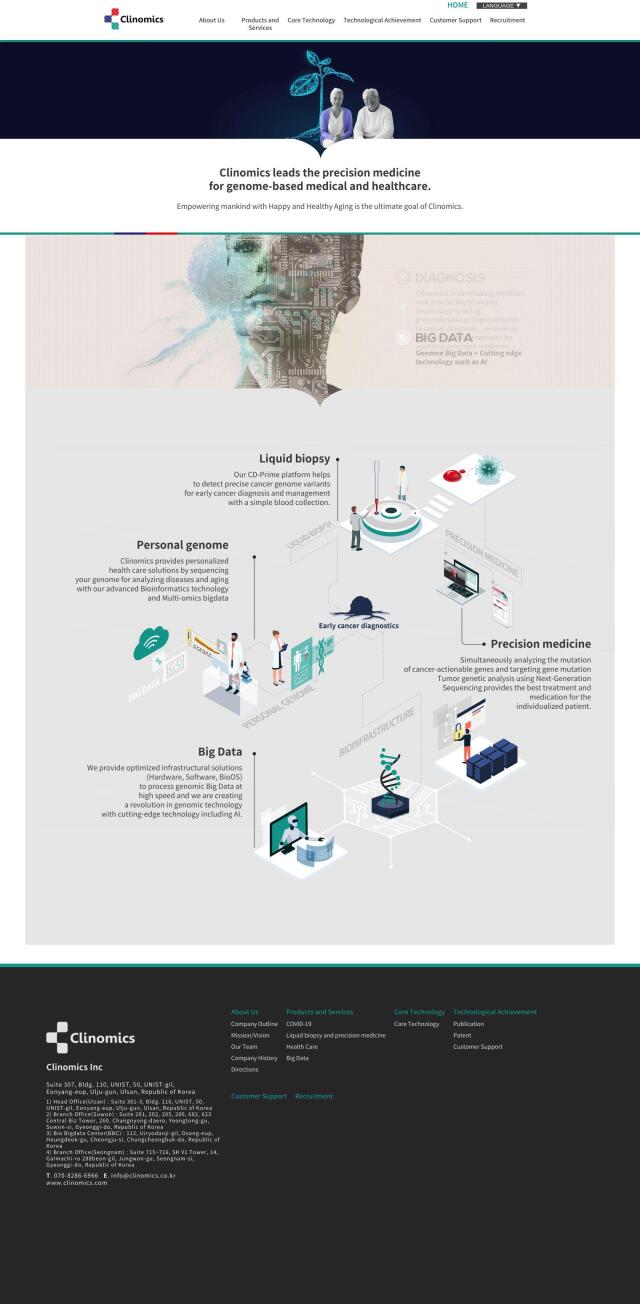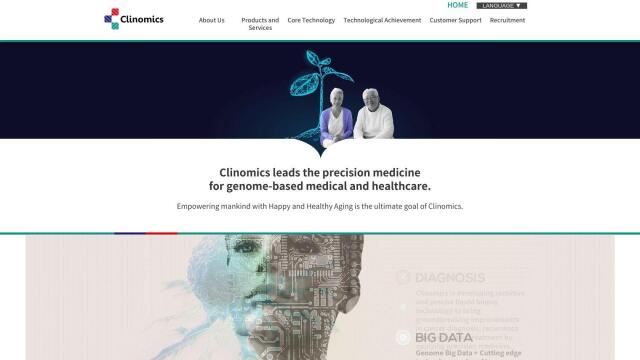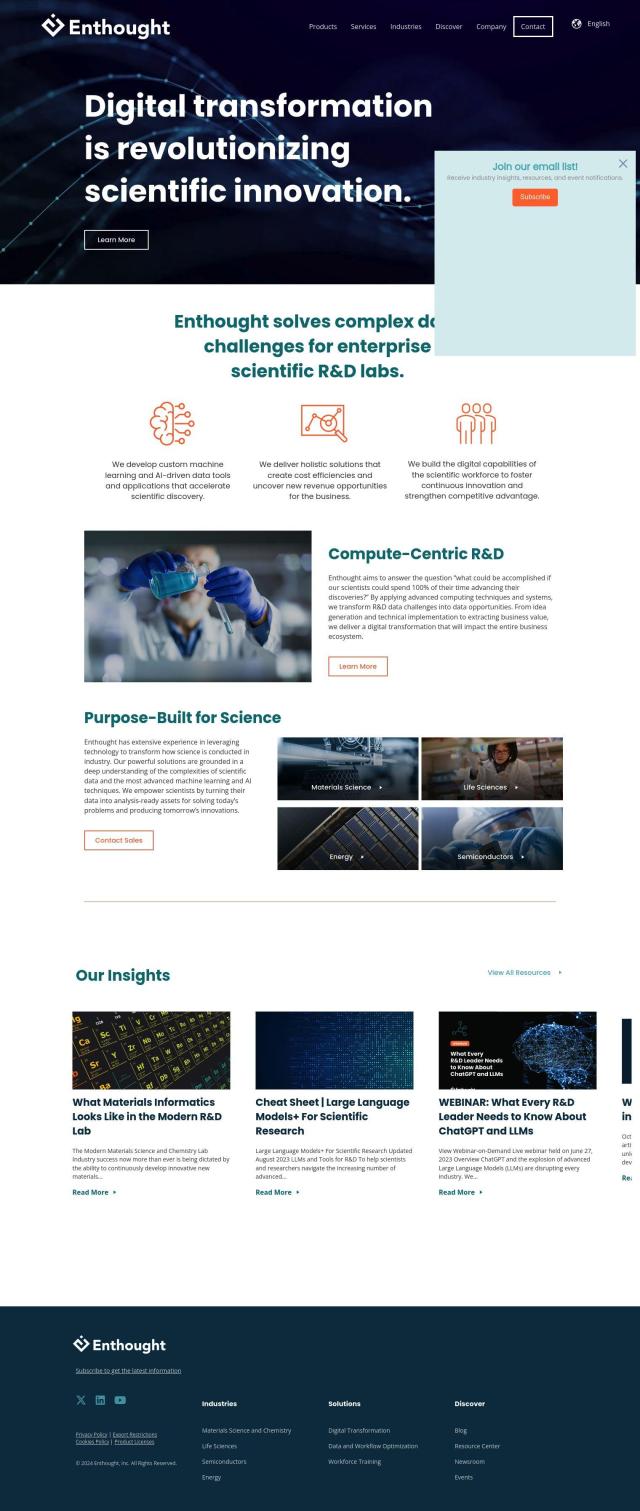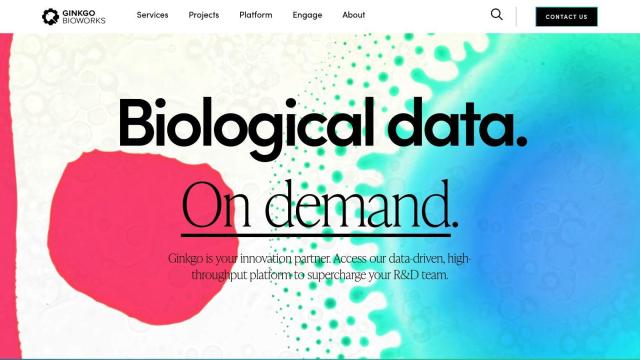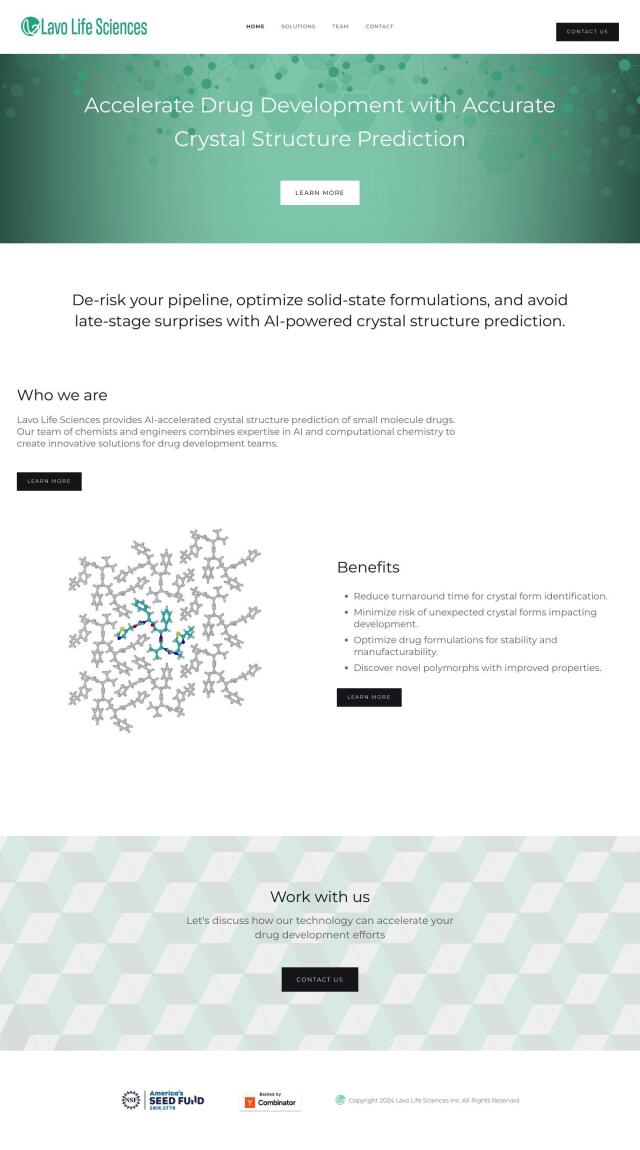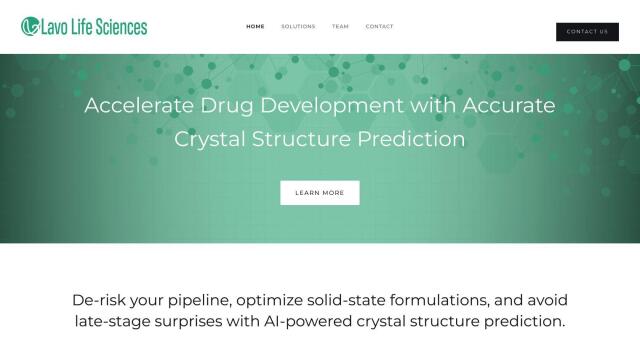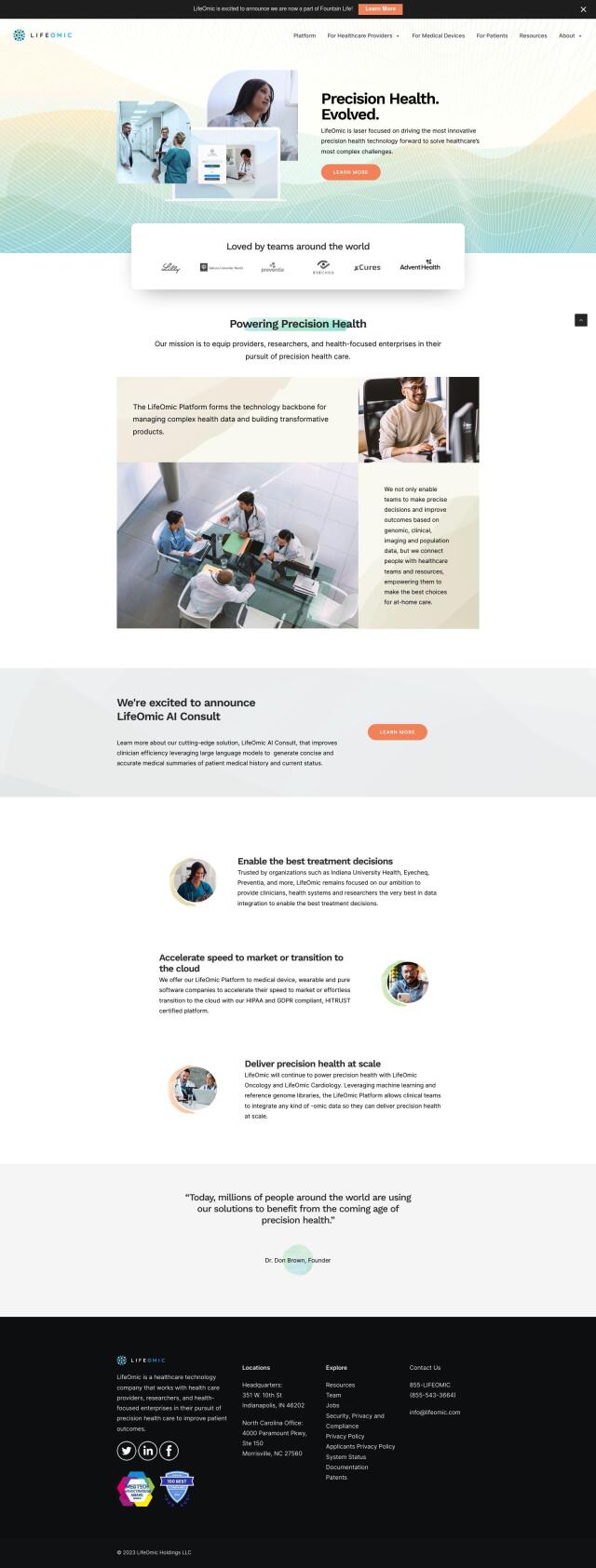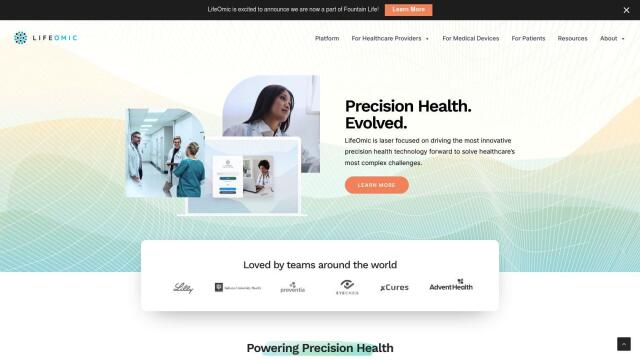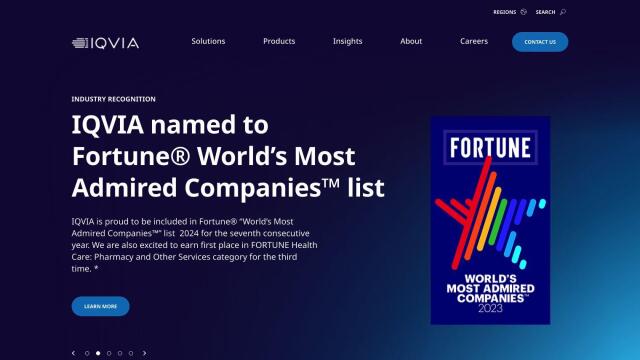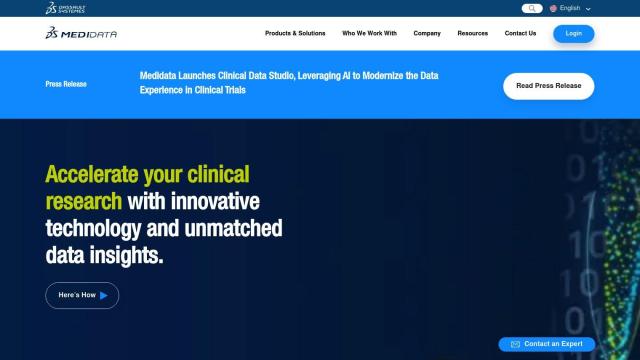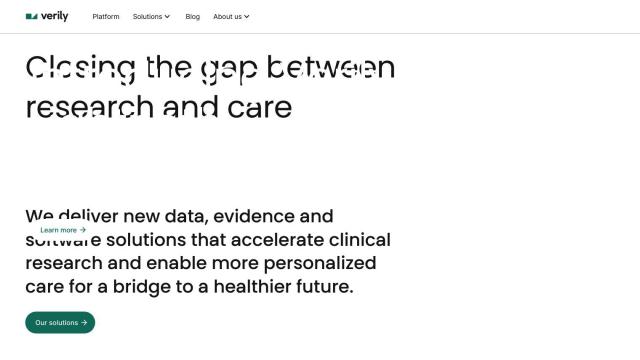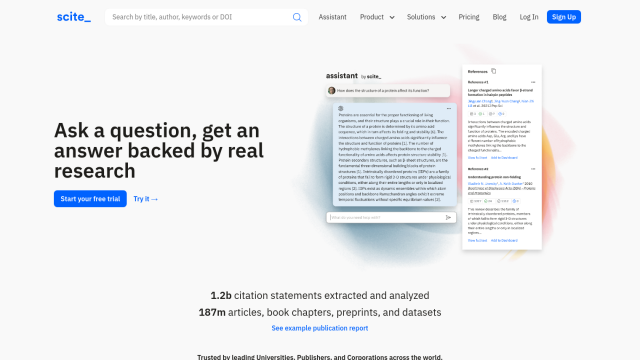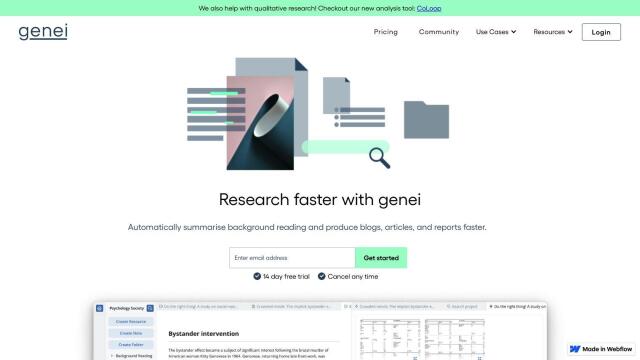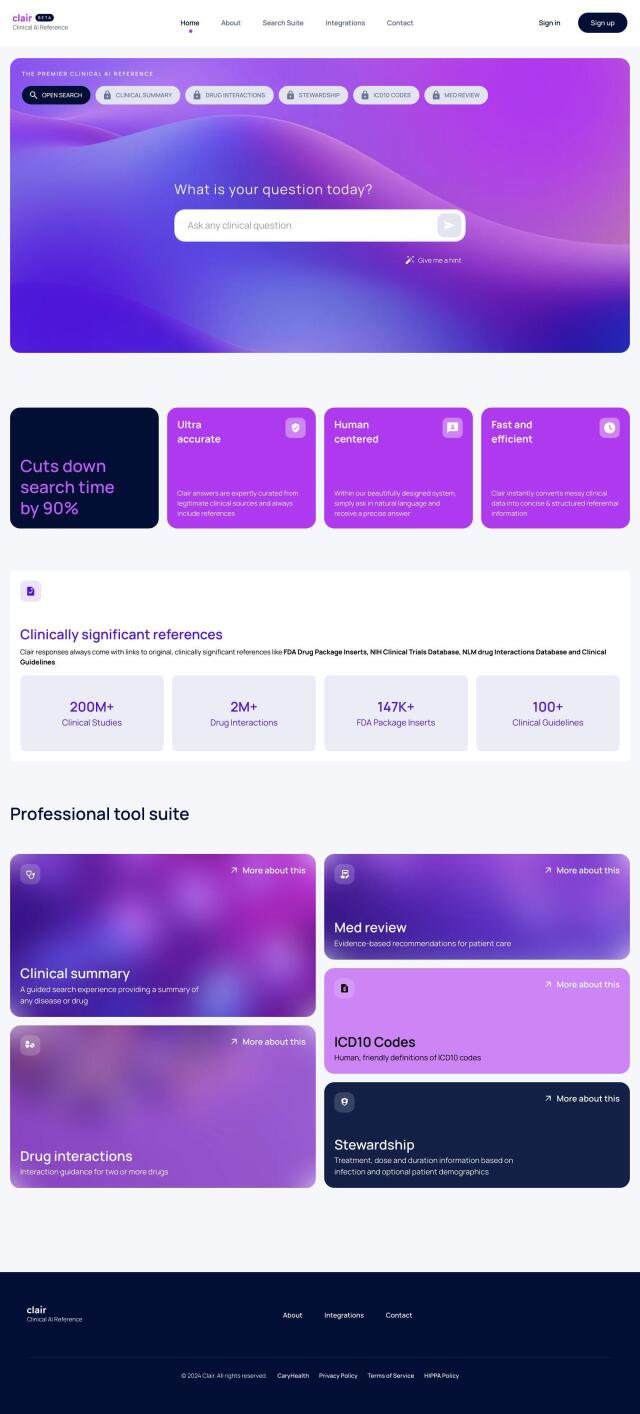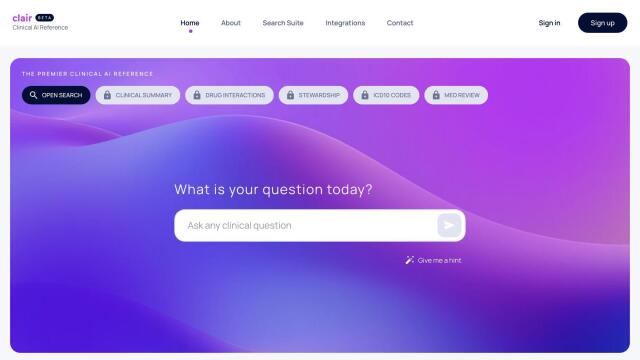Question: I'm looking for a tool that can identify and predict gene targets for diseases, can you help?

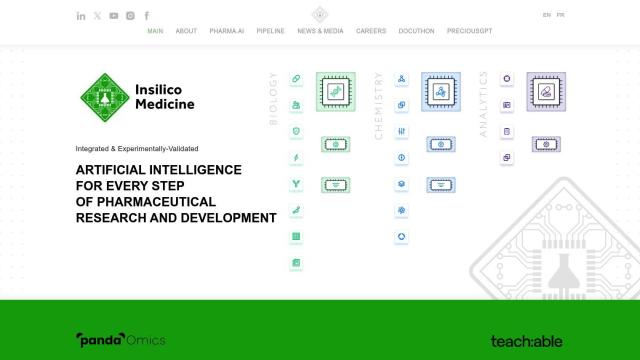
Insilico Medicine
If you're looking for a tool to identify and predict gene targets for diseases, Insilico Medicine is a top contender. The company's AI-powered platform can speed pharmaceutical research by accelerating target identification, molecule design and clinical trial outcome prediction. It includes tools like PHARMA.AI for drug discovery software, PandaOmics for OMICs data analysis, Chemistry42 for small molecule drug discovery, and inClinico for predicting clinical trial success rates. The platform can dramatically accelerate and reduce the cost of traditional drug discovery, helping to get life-saving drugs to market faster.
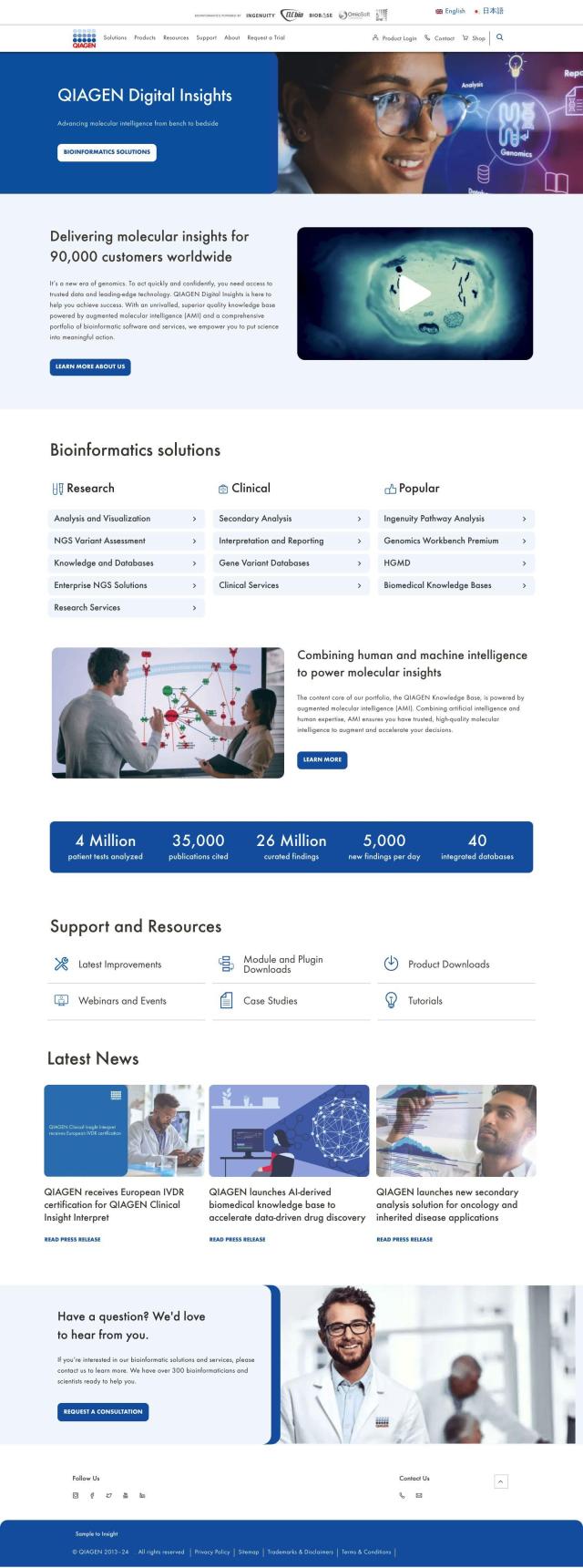
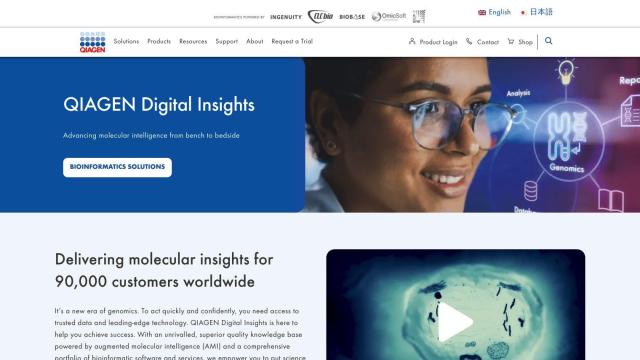
QIAGEN Digital Insights
Another top contender is QIAGEN Digital Insights. The company's bioinformatics platform offers expert-curated solutions for genomic and clinical research. It includes powerful tools for variant annotation, filtering and triage, including Ingenuity Pathway Analysis and Genomics Workbench Premium. The platform's knowledge base, powered by augmented molecular intelligence, delivers trusted and high-quality molecular insights. QIAGEN Digital Insights has been used in a variety of applications, including biomarker and target discovery, and is a good option for extracting actionable insights from large data sets.
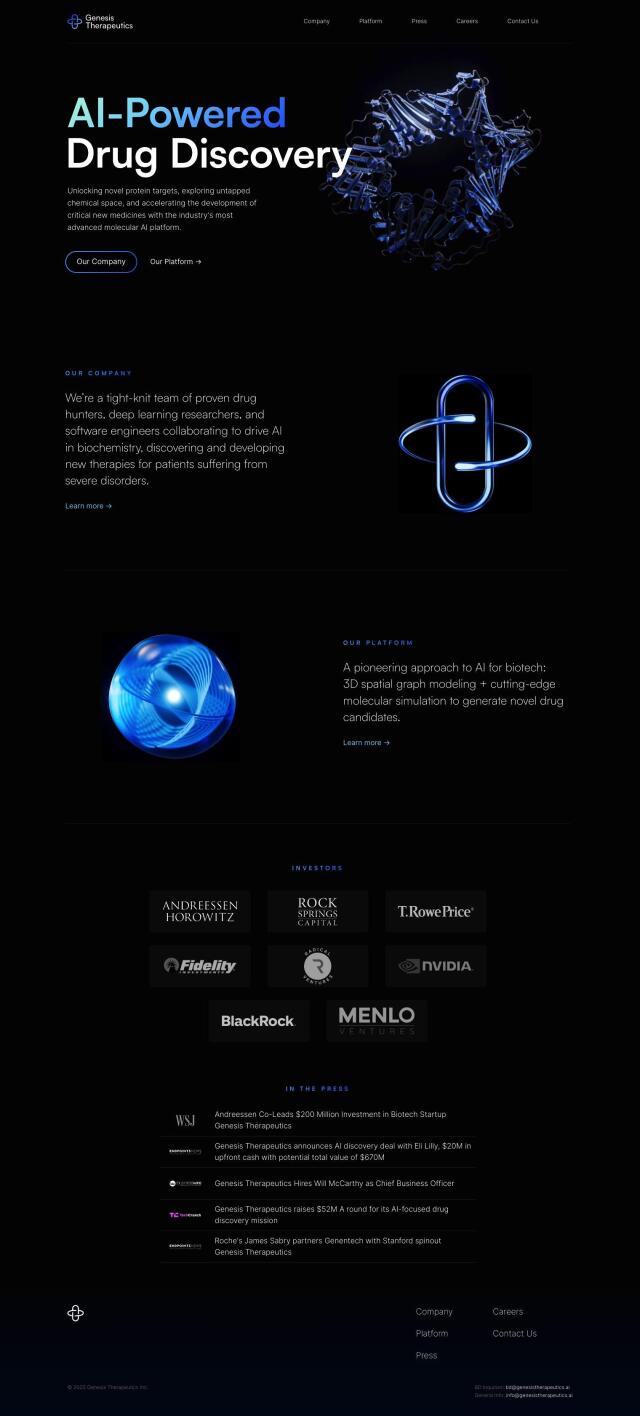
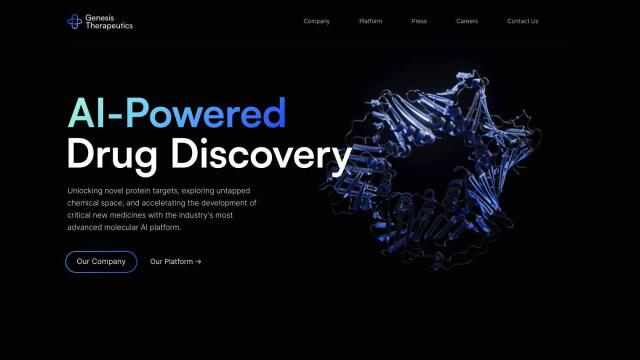
Genesis Therapeutics
For a molecular AI platform, check out Genesis Therapeutics. Its GEMS platform combines 3D spatial graph modeling and molecular simulation to generate new drug candidates. It uses deep learning for predicting properties and molecular simulations for binding dynamics, making it a good option for challenging biological targets. Genesis Therapeutics hopes to meet patients' needs by developing new treatments for severe diseases.

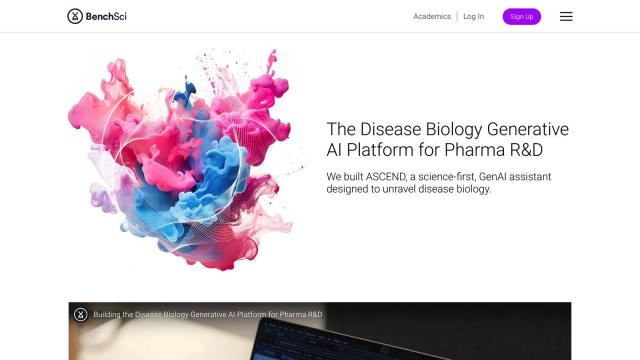
BenchSci
Last, BenchSci has the ASCEND platform, an AI-powered information retrieval system to speed up drug discovery and complex research workflows. The platform aggregates a large dataset, including behind paywalls papers and patents, and uses biology-specific multimodal AI to interpret experiments from text and figures. BenchSci is designed for pharmaceutical and biotech R&D organizations, helping them make better decisions and avoid experimental failures to speed up life-saving research.

